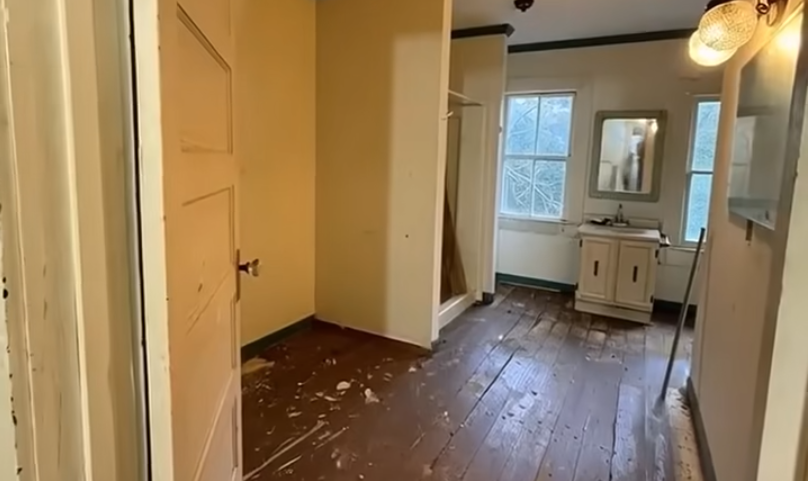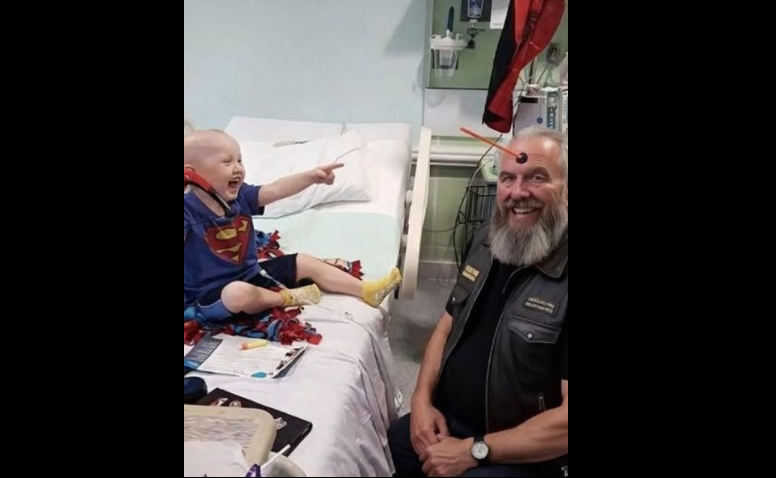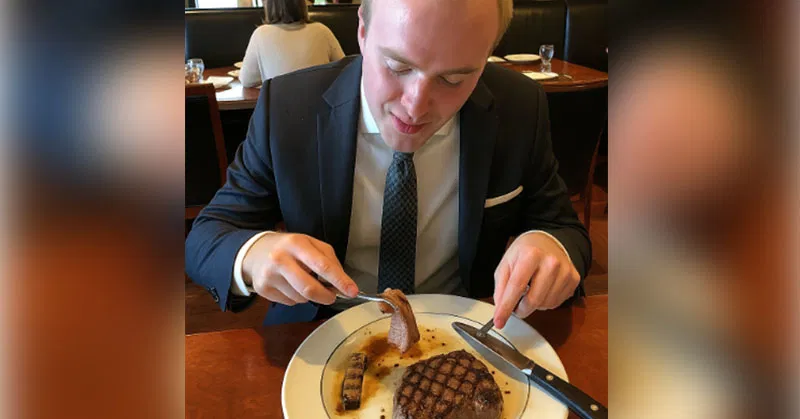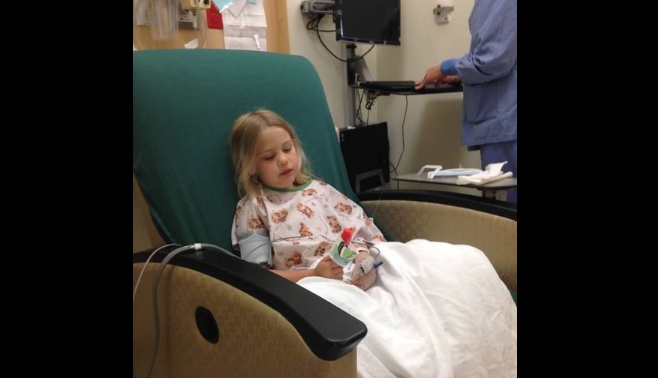Three years following our father’s passing, my brother, Theo, offered to sell me our childhood home at a reduced price, urgency in his voice. Two days after the papers were signed, I discovered the house was structurally unsound, a fact he’d concealed. His deception stung deeply. Fate, however, had its own way of balancing the scales.
On the day we laid Dad to rest, the October sky hung low, its gray weight echoing my sorrow. Theo stood at my side by the grave, his suit immaculate. My hand trembled, clutching a fistful of earth, as I let it fall onto the polished mahogany casket below.
“He’s at peace now,” I murmured, tears tracing paths down my face.
Theo gave a curt nod, his eyes flicking to his phone.
Our father, Elton, had been my anchor. After Mom’s death when I was 12, it was the three of us in our cherished Craftsman home on Greenfork Street. Dad worked long hours at the factory to provide for us. When Theo left for college, I remained, tending to Dad’s needs—painting his toenails when arthritis claimed his hands, driving him to chemotherapy, holding him through his final days.
A week after the funeral, the lawyer, Mr. Hargrove, adjusted his glasses and read the will. The house, where Dad taught me to ride a bike and where we carved pumpkins each fall, was bequeathed to Theo.
“But I thought—” I began.
“The house is Theo’s,” Mr. Hargrove said firmly. “Lila, you receive a savings account, roughly $3,000.”
Theo’s expression remained unreadable—no joy, no acknowledgment.
That evening, as I scrubbed dishes, Theo approached me in the kitchen.
“You need to move out by Sunday.”
My hands stilled on the plates. “What?”
“I need space to plan my future,” he said.
“Theo, this is my home too. I cared for Dad here for years.”
“He’s gone now,” Theo retorted, his gray eyes sharp. “The house is mine.”
Leaving felt like losing Dad anew.
I found a small studio above Mrs. Nora’s bakery, where the walls were thin and the radiator rattled nightly. But Dad’s resilience lived in me, and I was determined to reclaim what mattered. I worked three jobs—mornings at the diner, afternoons at the grocery, weekends cleaning offices. Every dollar was saved, every bill paid on time. My meals were simple: noodles and bakery leftovers.
Three years later, Theo’s message glowed on my phone: “Want the house? I’ll sell it to you, 30% off, quick deal.”
A shiver of doubt ran through me, but I called him.
“Why the rush?”
“Got a job in Denver,” he said. “Need to move fast.”
Suspicion lingered, but the house’s pull was stronger. “I want to see it first.”
“Tomorrow, three o’clock.”
Stepping onto the stone path felt like reclaiming a memory. The oak tree Dad and I planted when I was eight now reached the upper windows. Theo stood on the porch, keys in hand.
“Looks great, doesn’t it?” he said, opening the door.
It did. The hardwood floors shone, the walls gleamed with fresh paint, and the brass fireplace screen sparkled. My fingers traced the banister Dad had carved, emotion welling in my chest.
“You’ve kept it up,” I said.
“Basic upkeep,” Theo replied. “Nothing big.”
We toured the rooms—the kitchen where Dad taught me his pancake recipe, the living room where we watched classic films, my old bedroom, now bare but heavy with memories.
“Basement looks good,” I said, glancing down the stairs.
“Solid as ever,” Theo assured.
We signed the papers that day. My signature was deliberate, his hasty. This was more than a purchase—it was a homecoming.
“Welcome home, Lila,” Theo said, his smile shallow.
Moving in felt like a celebration. I unpacked boxes, hung Dad’s photos, planted flowers in the garden, and began restoring the porch swing where Dad once read.
Then the rain came.
It began softly Tuesday night, typical for November. By Wednesday, a steady drip echoed from the basement. Flashlight in hand, I descended. The walls were damp, a jagged crack splitting the concrete, water seeping through.
“No, no,” I whispered, touching the fracture.
By Thursday, more cracks appeared. The kitchen floor tilted slightly, nudging my mug across the counter. The house was failing.
Mr. Caldwell, the inspector, arrived promptly. When he emerged, his expression was grim.
“The foundation’s gone,” he said. “The house is sinking. It’s not safe.”
“How long?” I asked, voice trembling.
“Another storm could bring it down. You need to leave.”
I called Theo, hands shaking. “The foundation’s ruined. Did you know?”
A long pause.
“Did you know, Theo?”
“You had your inspection period,” he said, laughing. “You wanted the house so badly. Now it’s yours.”
He hung up.
In Dad’s old recliner, surrounded by memories, I wept until I was empty.
Mrs. Lin, the attorney, listened patiently, her eyes kind. After reviewing Theo’s records, she spoke.
“We can prove fraud. Theo hired a contractor, Mr. Delgado, to conceal the damage, not fix it. We have evidence.”
In court, Judge Larson examined the photos and receipts, her disapproval clear. “The sale is voided for fraud. The defendant refunds all costs and takes back the property.”
Victory felt hollow. The house was unlivable. Theo handed me the refund check, his face impassive.
“Hope you’re happy,” he said.
Packing the last of my things, the house felt lifeless. In Dad’s bedroom, I noticed a closet panel shifted by the settling. Curious, I pushed it aside, revealing a hidden compartment.
My heart raced. Inside was a locked box. Then I remembered: three years ago, Dad had given me a small brass key.
“Keep this, sweetheart,” he’d said. “You’ll know when it’s time.”
The key fit perfectly.
Inside were velvet pouches filled with jewelry—rings that gleamed, pearl earrings from his mother, a ticking gold watch. Beneath them, stacks of cash. But it was Dad’s letter that undid me, written in his steady hand:
“My dearest Lila,
You’ve found your way home, as I knew you would. This isn’t merely wealth—it’s my gratitude for your devotion. You sacrificed so much to care for me. Your love is a treasure.
I’m honored to be your father. Use this to build a life worthy of you, surrounded by those who cherish you.
Forever yours,
Dad.”
I held the letter close, tears falling from the depth of his love.
Theo’s truck arrived as I loaded my car. He surveyed the decaying house, his expression one of dawning loss.
“All done?” he asked.
“Everything,” I said, touching the box beside me.
“The house is worthless now,” he said. “Insurance won’t cover pre-existing damage.”
“That’s your burden,” I replied, smiling. “Dad taught me love is the true inheritance. You were too focused on his wealth to see it.”
Driving away, I glanced back. Theo stood before the crumbling Craftsman, his prize a hollow shell.
I carried Dad’s love, his final gift, and a future unshakeable. The greatest triumph isn’t settling scores—it’s knowing your wealth lies in love, not in what others try to take.




